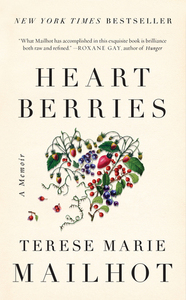Take a photo of a barcode or cover
challenging
emotional
reflective
slow-paced
A poetic, lyrical, fractured narrative about being an Indian woman, being mentally ill, being abused, being abusive, being in love, being self-destructive, and being Terese Maria Mailhot. I finished this book in one day, and it reminded me of why I love to read and write memoir. ✒️
**Edit: Had to add that this book has one of the best and most actually helpful (as a writer) Author Q&As I’ve ever read!
**Edit: Had to add that this book has one of the best and most actually helpful (as a writer) Author Q&As I’ve ever read!
I couldn’t get into this, primarily because I didn’t find the writing style very engaging.
Making Indian women inhuman is a problem for me. We’ve become too symbolic and never real enough.
Five-star book; one-star narration.
This was a quick listen and was beautifully written, but the narration and performance of the audiobook was just horrid. Everything was read as if it were one long, monotone sentence with no pauses or breaks for emphasis. Entire new sections would start with no hint that it was a new section, adding unnecessary confusion to the story. I feel like I need to reread the entire thing just to fully appreciate the language and writing.
The story itself was beautiful and hit close to home a few times. There were so many lines I want to go back and savor, specifically lines describing the author's mother, her conflicted feelings toward her parents and how the world sees Indian women. I love that the story is framed as a letter to the ex-boyfriend who broke her; it makes the narration a bit unreliable, but more authentic and real at the same time.
Definite recommend. We need to listen to Indian and Native women more. I plan to add more such books to my TBR.
Five-star book; one-star narration.
This was a quick listen and was beautifully written, but the narration and performance of the audiobook was just horrid. Everything was read as if it were one long, monotone sentence with no pauses or breaks for emphasis. Entire new sections would start with no hint that it was a new section, adding unnecessary confusion to the story. I feel like I need to reread the entire thing just to fully appreciate the language and writing.
The story itself was beautiful and hit close to home a few times. There were so many lines I want to go back and savor, specifically lines describing the author's mother, her conflicted feelings toward her parents and how the world sees Indian women. I love that the story is framed as a letter to the ex-boyfriend who broke her; it makes the narration a bit unreliable, but more authentic and real at the same time.
Definite recommend. We need to listen to Indian and Native women more. I plan to add more such books to my TBR.
emotional
inspiring
sad
medium-paced
This memoir is not an easy read. Mailhot has written a beautifully assembled collage of her life, one that examines motherhood, suffering, mental illness, belonging, identity, and race. What I found utterly beautiful in this book was the way in which she always centered her Native roots, but did not romanticize or mythologize them. There is a constant reminder of difference when it comes to white people and those not living on reservations, a kind of haunting that reminds us of a past that keeps on persisting. Her lyrical writing is also reflective of the haziness of memory, and that is important here as she folds open parts of her history for us. The language is intentional, creative, and emotional. There are moments of discomfort, mostly because she writes a lot of this in second person POV, which is a bit more jarring in audiobook format. Maybe it is best to listen to this one to truly feel the power of storytelling here. Definitely one that should be savored slowly.
Terese Marie Mailhot definitely lays it all out on the table. The writing is raw, honest, and beautiful. It is a little too stream of conscience for my taste.
I understand that this memoir comes from a place of pain, a troubled history of abuse, addiction, etc. I know that she struggles with mental health issues, as she documents it all. I understand that your past can affect your present, which seems apparent as she details the unstable and rocky relationships she has since been through. Personally, I didn't really want to read any more about these relationships as it started to feel like I was reading her diary, reading things that were meant to be personal and therapeutic to the writer. Sharing all this information with the world takes a certain amount of courage because it is so personal, but it didn't feel new or necessary or revolutionary to read someone's therapy journals.
I understand that this memoir comes from a place of pain, a troubled history of abuse, addiction, etc. I know that she struggles with mental health issues, as she documents it all. I understand that your past can affect your present, which seems apparent as she details the unstable and rocky relationships she has since been through. Personally, I didn't really want to read any more about these relationships as it started to feel like I was reading her diary, reading things that were meant to be personal and therapeutic to the writer. Sharing all this information with the world takes a certain amount of courage because it is so personal, but it didn't feel new or necessary or revolutionary to read someone's therapy journals.
A beautifully written memoir (memoirs = no stars on principle). This memoir packs a wallop regarding the female indigenous experience and is an intimate, often bleak, exposè into this woman’s life, relationships, associated traumas, and mental illness. I did not care for the audio narration and want to get as much out of this book as possible so am re-reading it in physical form - it’s that good.
Again, I find it difficult to review a memoir, especially one so explicit and honest with one’s learning through experience as this.





